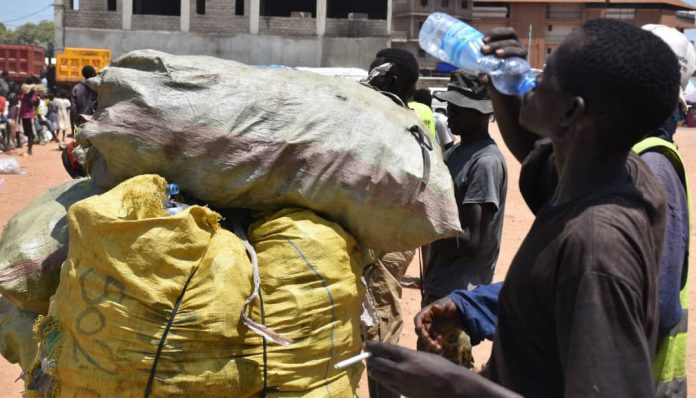The Juba City Council in collaboration with a private firm launched the collection of plastic bottles for recycling.
The Plascom will be collecting plastic bottles within the city before the recycling work begins in November this year.
Speaking at the launch yesterday, the undersecretary in the Ministry of Environment, Joseph Africano, said most of the companies that deal in plastic bottles are not paying the environmental fees to the government.
“I have noticed there are many companies that are resisting these fees. They don’t want to pay, as government and ministry in charge, [we will] ensure that our environment is sustainable for us.”
Africano added that any company that does not want to pay the environmental fees should close down their businesses and leave the country.
According to him, any company importing plastic bottles is supposed to pay SSP 10 per 500 millilitre of water bottle.
“There is an environmental fee of SSP10, anything bigger is SSP20. Now, these companies that are producing bottled water, companies that are importing for us our drinks will have to add that amount into the price of the bottle,” he explained.
The official warned that the government will not to allow any company to pollute the environment and siphon the money outside the country.
“The ministry of Environment will not tolerate any company or anybody who will not pay the environmental fee.”
Africano added, “They (companies) want to make money and if something is supposed to be taken from them, they start crying like crying babies.”
Meanwhile, the administrative officer from Juba City Council, Lado Kubari, said the city council has not been able to collect the plastic bottles within the city due to limited resources.
“When you see the city, there are a lot of plastic bottles around the city. So, as the city council, we are not able to collect them because we have limited resources.”
“If you have seen, Juba city is very dirty and is full of plastics. We are asking the people and citizens in and around Juba to help to collect the plastics.”
In June, the national minister of environment, Josephine Napwon, said the ministry was considering a two-year ban on some plastics that make the city chock full of garbage.
“If the ban is declared, water companies will only produce 10 and 20 litres and it will only be lifted when there is a recycling plant established in the country,” the official added.
“They currently have plans and initiatives for establishing these plans and hope they will materialize soon,” she said.










